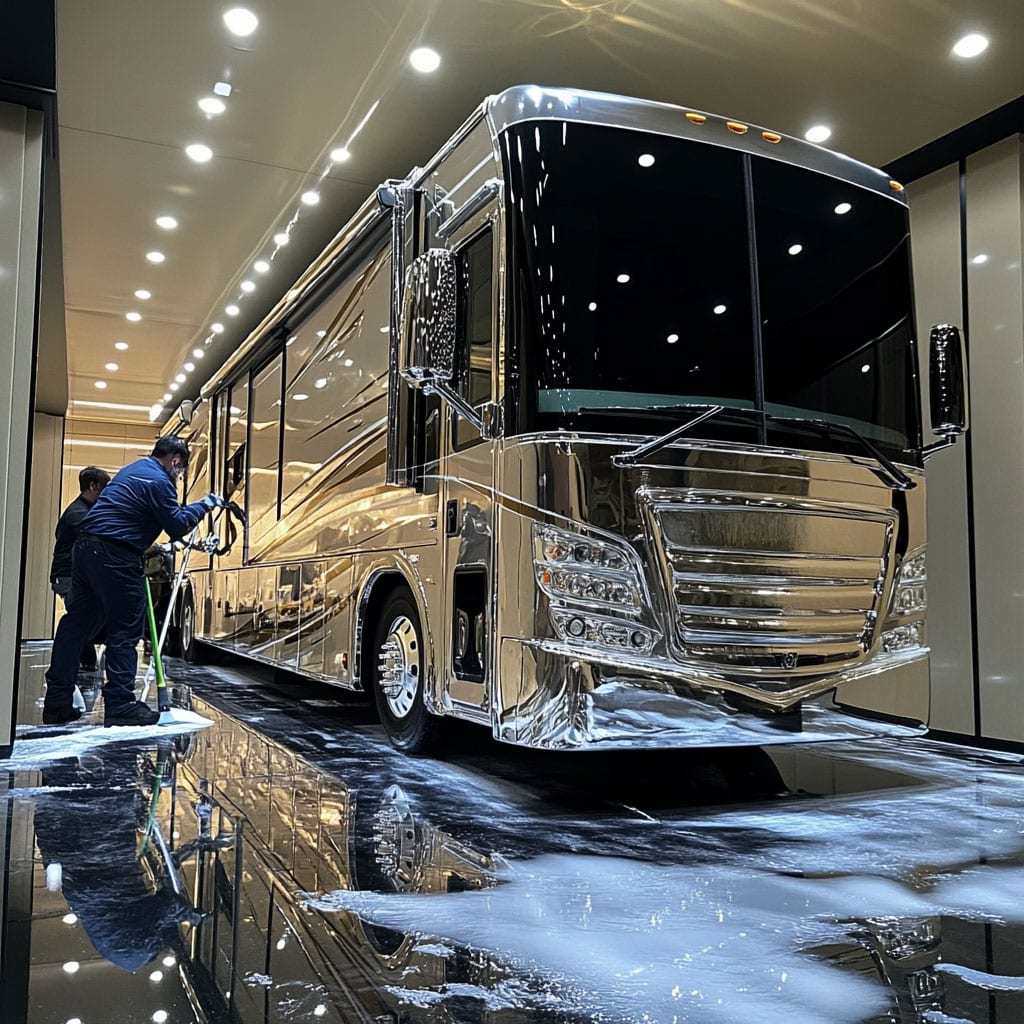Gas vs. Diesel RVs: What’s the Difference and Which One is Right for You?
🌟 Special Offers from Main Street RV
📞 Call 480-626-8845 – NO CITY SALES TAX!
🔋 Solar & Lithium Installs
Upgrade your RV with sustainable, off-grid power solutions.
🚐 Free RV Consignment
Let us help you sell your RV—no consignment fees!
⭐ Love Your Experience?
Leave us a Google review—we appreciate your feedback!
📍 Visit or Call Today
Stop by or call to schedule a viewing.
Your next adventure starts here!

When it comes to choosing the right RV, one of the first major decisions you’ll face is whether to go gas or diesel. It’s a question we hear often at Main Street RV, and it’s an important one—because while both will get you down the road, the experience behind the wheel (and under the hood) can be quite different.
Whether you’re a weekend warrior or planning the ultimate full-time adventure, understanding the pros and cons of gas vs. diesel RVs will help you make the best investment for your lifestyle.
1. Power and Performance
Diesel RVs:
Diesel motorhomes, especially Class A diesel pushers, are known for their torque. This means they can pull more weight with less effort—ideal for towing a car or climbing steep grades. They typically have rear engines, offering a quieter ride and better weight distribution.
Gas RVs:
Gas-powered RVs tend to have front-mounted engines and are less powerful, but they’re perfectly capable for most travel routes, especially if you’re not hauling a trailer or crossing mountain ranges every trip.
2. Cost to Buy and Maintain
Gas RVs:
Initial cost is significantly lower. Gas engines are simpler and more affordable to maintain. If you’re new to RVing or sticking to a modest budget, gas models are a great entry point.
Diesel RVs:
Diesel rigs come with a higher sticker price. However, they often have more luxury features, larger capacities, and longer-lasting engines. Maintenance costs are higher, but required less frequently due to the engine’s durability.
3. Fuel Economy
Diesel RVs:
Diesel fuel generally offers better mileage—anywhere from 8 to 14 mpg, depending on weight and terrain. Over long distances, this can add up to serious savings.
Gas RVs:
Gas RVs tend to average around 6 to 10 mpg. Fuel costs are usually lower at the pump, but less efficient in the long run.
4. Ride Comfort and Noise
Diesel RVs:
Thanks to air-ride suspension and rear engine placement, diesel pushers deliver a smoother, quieter ride. You’ll notice it most on long hauls or rougher roads.
Gas RVs:
Gas coaches are louder and may feel stiffer over bumps, but modern chassis and suspension systems have come a long way in improving comfort.
5. Longevity and Resale Value
Diesel RVs:
Diesel engines are built to last—often 250,000 miles or more. They also tend to retain value better over time, especially luxury Class A diesels.
Gas RVs:
Gas engines may need serious repairs after 100,000–150,000 miles, but for many RVers, that’s more than enough for years of travel. They do depreciate faster, but their lower purchase price helps offset that.
Which RV is Right for You?
- Choose a Diesel RV if: You plan to travel full-time, tow another vehicle, value a smooth ride, and want long-term durability.
- Choose a Gas RV if: You’re taking shorter trips, watching your budget, or just starting your RV journey.
Final Thoughts
There’s no wrong answer—only what’s right for you. At Main Street RV in Apache Junction, we help RV shoppers find the perfect match for their needs, budget, and sense of adventure. Stop by and test drive both gas and diesel models. Once you hit the open road, you’ll know which one feels like home.
